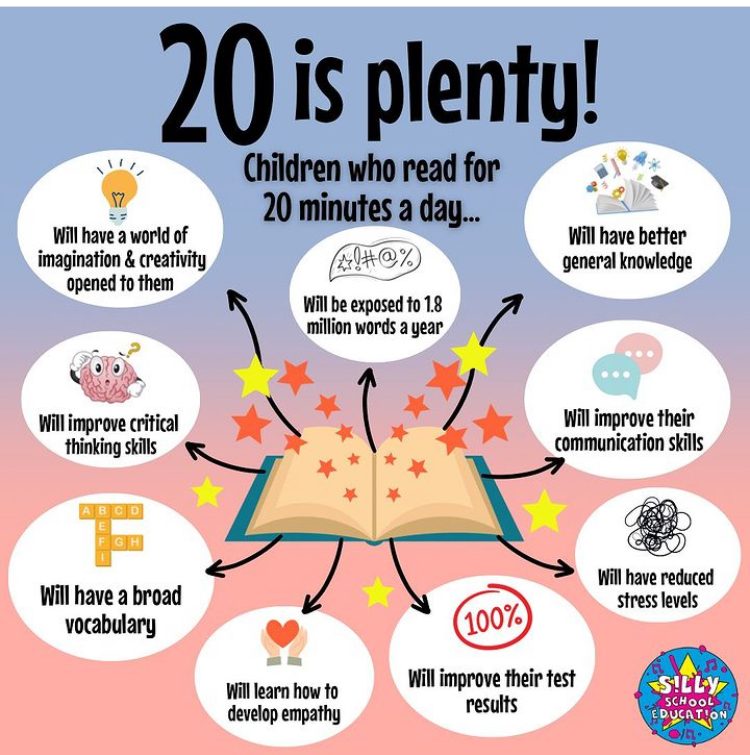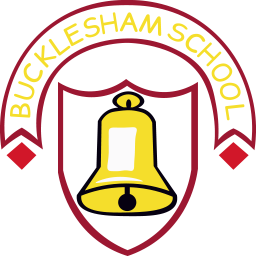Reading
At Bucklesham Primary School, we promote and value reading as an enjoyable activity and a life skill. Teachers plan for a range of comprehension strategies that allow pupils to engage with text in a variety of ways to suit different learning styles. We aim to develop an ethos in school where reading is for pleasure. There is not one set reading scheme, KS1 children have a selection of reading books based on phonic phases from Little Wandle decodable books, and all children have access to reading books based on their reading level and interest. We have a well stocked library, that we are always looking to expand and supplement.

Shared reading
In shared reading the teacher models the reading process to the whole class as an expert reader providing a high level of support. Teaching objectives are pre-planned and sessions are characterised by explicit teaching of specific reading strategies, oral response and collaboration. Texts are rich and challenging, beyond the current reading ability of the majority of the class.
In guided reading texts are chosen to match the ability of the group but still provide an element of challenge.
Guided Reading
Guided reading in Reception and KS1 provides a forum for pupils to demonstrate what they have learnt about reading; the focus for the reading is concerned with extending strategies/objectives taught in shared reading. Guided reading books are closely matched to the phonic phase that the child is secure in, using half-termly assessments to ensure the books are able to be read independently. There are three reading sessions that take place weekly with adult's support before children take this book home. The three reads consist of:
- Read 1: decoding - this has a clear focus on applying phonic knowledge to word reading
- Read 2: prosody - teaches children to read with prosody, so that they learn to read aloud with appropriate meaning, stress and intonation
- Read 3: comprehension - the final reading session explores the children's comprehension of the book
Teachers plan for independent reading activities during sessions of Literacy teaching. Texts are selected so that pupils can access them without support. The focus for the reading is to provide practice and develop personal response to text. Some classes use 'whole class guided reading' to further enhance their vocabulary and access to high quality texts.
Curriculum opportunities
Many other opportunities are provided for pupils to practise and extend reading in other subjects. Pupils select texts under the guidance of the teacher for independent and home/school reading. Teachers monitor independent reading and discuss progress with individual pupils on a regular basis.
Learning Environment
All teachers are responsible for providing a stimulating reading environment, promoting book ownership and recommending books to pupils. Classroom and central displays are language rich and displays promote authors and books.
Home Reading
Reading at home is regarded as an important part of reading development. Parents are encouraged to hear their children read regularly (at least 3 times a week) and respond to their child’s reading through Reading Record books which parents and staff write in.
Within Reception and KS1, three books are sent home weekly. These books include:
- A Guided Reading book which they have read three times throughout the week and should be able to read independently - this book is selected according to Phonics assessments
- A second book which is appropriate and in line with their reading level
- A shared book/library book - this book is for parents/guardians to read and share with a child
Within KS2, pupils tend to take home 1 - 3 books a week, depending on the size of the book. These books are appropriate for their reading level and can be changed when finished.
Reading Frequency
All teachers or Teaching Assistants are responsible for hearing children read at least once per week where possible. This should ensure that all children are heard read by an adult at least once per week in school although this may be more frequent depending on need.
